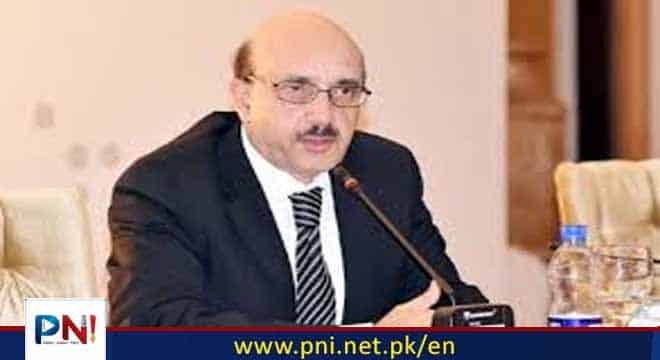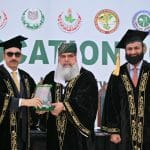Islamabad, July 15:
“Kashmir is once again at the centre of international attention—and this time, the global community is more aware than ever of India’s duplicity and Pakistan’s principled stance,” stated Ambassador Sardar Masood Khan, Former President of Azad Jammu and Kashmir and Pakistan’s former envoy to the United States, China, and the United Nations.
In an exclusive interview, Ambassador Khan delivered a comprehensive assessment of Pakistan’s foreign policy trajectory, regional security challenges, and the enduring significance of Kashmir in Pakistan’s strategic outlook.
Ambassador Khan emphasized that while India has historically sought to bury the Kashmir dispute through a pattern of bilateral overtures followed by unilateral aggression, the world is no longer willing to look away. “After India’s illegal annexation of Jammu and Kashmir in August 2019, there was a temporary dip in its visibility. But President Trump’s recent interventions have reignited the global debate. Kashmir is firmly back on the international radar—despite India’s consternation.”
He warned that India’s playbook—from insisting on bilateralism to erasing commitments—is well-known and has failed. “The bilateral approach has been exposed as a mirage. It’s time for the global community to recognize that international mechanisms must now play a role in resolving Kashmir.”
Khan rejected claims that Pakistan has backed away from the issue. “Pakistan’s resolve remains firm. But for any sustainable diplomatic initiative to succeed, Pakistan must speak from a position of strength—economically, politically, and strategically. That is the new challenge and the new opportunity.”
He was sharply critical of Indian disinformation campaigns, particularly its baseless claims that Pakistan is developing intercontinental ballistic missiles to threaten the United States. “This is a desperate attempt to sabotage improving Pak-US ties. India itself is developing the Agni-VI with a range of up to 16,000 km—capable of striking continental US mainland. Their hypocrisy is evident, and Washington is taking note.”
Ambassador Khan affirmed that US-Pakistan relations are witnessing a revival. “This is the most serious and strategic engagement we’ve seen since the Musharraf era,” he noted, referring to President Trump’s praise for Field Marshal General Asim Munir and new cooperative areas including cryptocurrency, renewables, extractive industries, and emerging technologies.
He explained that the momentum in Pakistan-US relations does not come at the expense of China. “Our alliance with China remains our economic and defense lifeline. But we are equally capable of deepening ties with the United States. China has consistently advised us to maintain a balanced approach and reduce tensions with Washington. We are not choosing sides—we are asserting our national interests.”
On the issue of water security, Khan condemned India’s illegal efforts to suspend the Indus Waters Treaty. “This is not just a legal dispute—it is a matter of survival for Pakistan. India’s actions violate international law and the treaty’s binding framework. Pakistan could raise the matter at the UN Security Council and engage with China as an upper riparian state. We will not compromise on our water rights.”
Addressing the possibility of renewed conflict, Khan warned that the current climate is dangerous. “The BJP’s electoral setbacks, rising domestic tensions, and aggressive rhetoric have created a volatile environment. A single non-state incident could trigger a nuclear confrontation. Strategic opacity must be our defense—we should not telegraph our thresholds or responses.”
Khan also touched on the perceptions among Kashmiris. “Many Kashmiris have experienced immense suffering and have at times felt disappointment. But the truth is, they remain aligned with Pakistan. The idea of Pakistan, rooted in the vision of Quaid-i-Azam and Iqbal, cannot be erased by Indian brutality. The spirit of resistance is alive, and so is the dream of self-determination.”
In reflecting on Pakistan’s diplomatic history, he highlighted the achievements of the 1950s when Pakistan’s leaders firmly placed Kashmir on the UN agenda. “Despite being a young and fragile state, we carved out a significant global space. We must now summon that same clarity and confidence.”
Ambassador Khan concluded with a broader message: “Pakistan is entering a new phase of diplomatic rebalancing. We are no longer isolated. From Washington to Beijing, and Riyadh to Moscow, our responsible leadership is being recognized. India’s campaign of distortion and dissimulation is unravelling. The future belongs to nations that act with purpose, maturity, and vision—and Pakistan is ready to lead.
Follow the PNI Facebook page for the latest news and updates.








